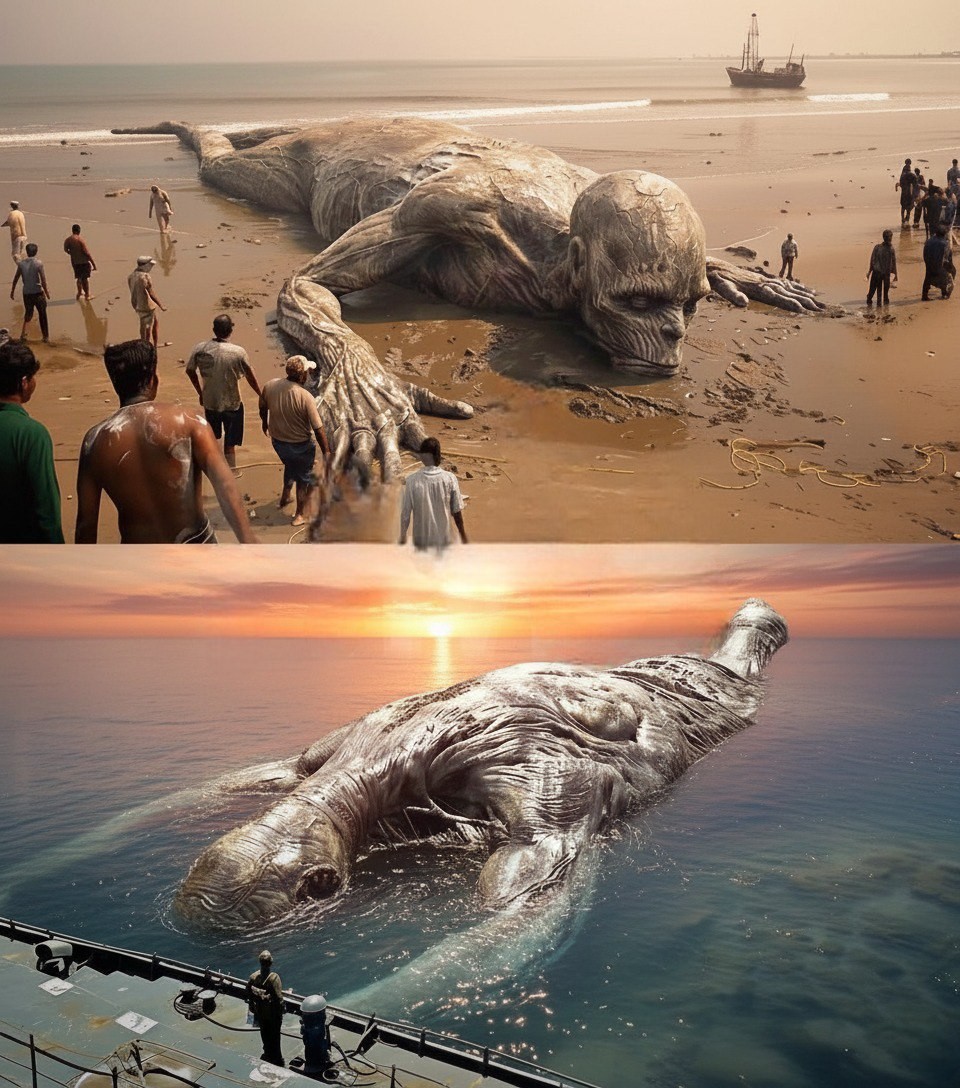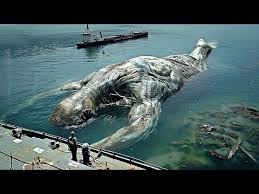The Colossus of Gujarat: India’s Lost Giant Emerges from the Depths!

Along the sun-kissed shores of Gujarat, India, an astonishing discovery has left archaeologists and locals alike in awe: the fossilized remains of a colossal humanoid, now aptly dubbed “The Colossus of Gujarat.” Initially mistaken for an unusual rock formation, this remarkable find has revealed massive bone structures and fossilized skin, indicating a being of unimaginable scale that once roamed the Earth.

Stretching along the Arabian Sea near the legendary port city of Dwarka, the Colossus has ignited fierce debate among experts and enthusiasts. Could this discovery represent an unknown species of aquatic-adapted hominid? Such a notion echoes the myths of sea giants found in ancient Indian texts, where tales of enormous beings navigating the oceans have long captivated imaginations. The implications of such a being existing challenge our understanding of human evolution and the adaptability of life on Earth.
Moreover, the location of the discovery adds another layer of intrigue. Preliminary sonar mapping suggests that the figure continues underwater for kilometers, intertwined with what appear to be man-made structures. This tantalizing evidence raises the possibility of an advanced, long-lost civilization, its monumental constructs now submerged beneath the waves. The intersection of myth and history blurs, inviting questions about the technological capabilities of ancient societies.
As researchers work diligently to unravel the mysteries surrounding the Colossus, they are faced with a multitude of questions. What environment did this colossal being inhabit? How did it adapt to its surroundings, and what led to its eventual demise? The fossilized remains could provide invaluable insights into the life of a creature that, if proven to be a distinct species, may redefine our understanding of prehistoric life.

The Colossus of Gujarat challenges everything we know about ancient engineering and the secrets lying hidden beneath the sea. As excavation and analysis continue, the discovery captivates the public imagination, urging us to reconsider our history and the narratives we believe about our past.
What stories of resilience, ingenuity, and survival will emerge from this monumental find? The echoes of the Colossus remind us that the depths of our oceans may hold more than just water; they may guard the lost giants of our history, waiting patiently to reveal their secrets to a world eager to learn.











